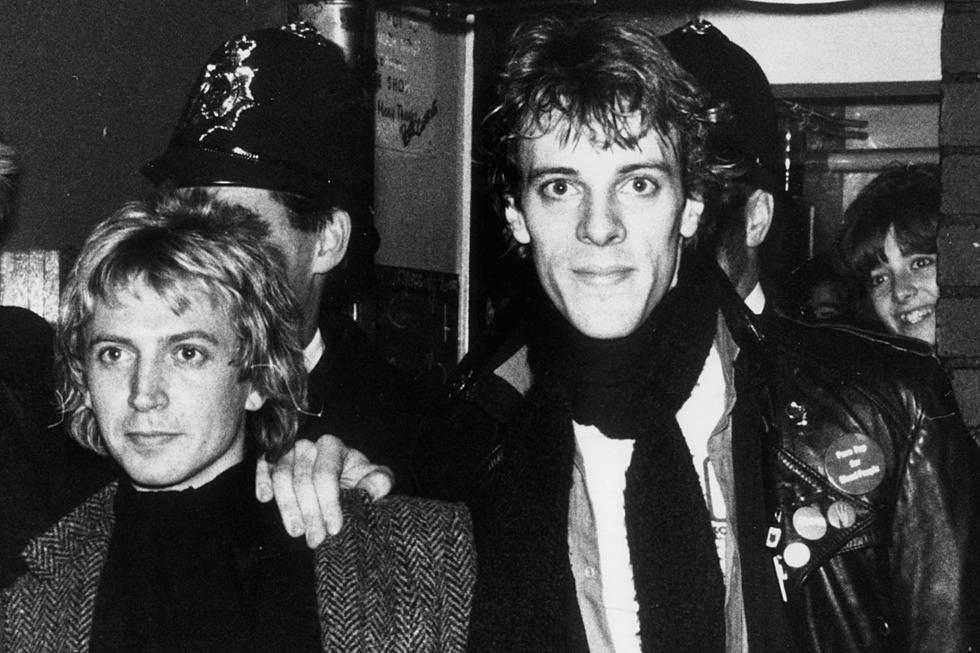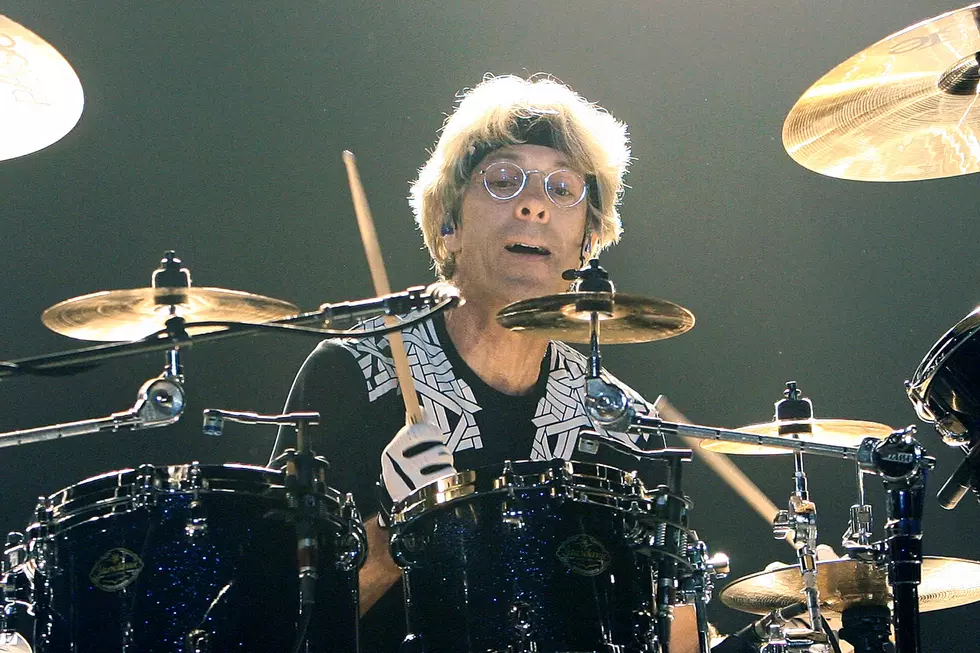
How ‘Synchronicity’ Ended Up Breaking the Police Apart
The Police opened up for their fourth album, 1981's Ghost in the Machine, smoothing down their spiky punk- and reggae-inspired sound while achieving a major commercial breakthrough. But as they proved on June 1, 1983, Ghost was just the opening act for the album that would cement the Police's status as one of the biggest rock groups on the planet.
In fact, by the time Synchronicity – the Police's fifth LP – arrived in stores, it already boasted a hit single. "Every Breath You Take" would ultimately go on to top the charts in 15 countries before winning Grammy Awards for Song of the Year and Best Pop Performance by a Duo or Group With Vocals. A distant musical cousin to the more aggressive and frequently frantic sounds of previous Police singles, the tune was widely misunderstood as a ballad of love and devotion. But its sedate arrangement helped mask the song's darker meaning.
Bassist-vocalist Sting later admitted that he sees "Every Breath You Take" as "the real song of the Reagan years. ... It's a song about falling asleep and letting Big Daddy, John Wayne look after us, even though we know he's an idiot. It's about surveillance, about being protected and controlled and not really thinking, not really struggling with the concept. It's very seductive," he told In the Studio. "People love the song, but there's also a dark side to it. It's very sinister."
Similar intellectual themes ran throughout the rest of the record. As he'd been on Ghost in the Machine, Sting was inspired by the works of essayist Arthur Koestler, whose 1972 book The Roots of Coincidence introduced him to psychologist Carl Jung's theory of synchronicity – which, loosely paraphrased, dictated that coincidences may be the product of an unseen, orderly dynamic.
"Is there any meaning in coincidence? That's what I wanted this record to be about. It's a grand design," Sting mused during the interview, before admitting, "I'm not sure if it comes off or not."
Watch the Police's 'Every Breath You Take' Video
Whether it hangs together as a concept album, or successfully plumbs the depths of Jungian psychology, Synchronicity certainly resonated with the Police's fans – a group that would be more numerous than ever at the end of 1983, by which time the album had generated three more hit singles ("Wrapped Around Your Finger," "Synchronicity II" and "King of Pain"), and all four of the band's previous albums had returned to the Billboard charts. Boasting lyrics that reference everything from world politics and the Loch Ness Monster to the poetry of William Butler Yeats, the album was a byproduct of a distinct era in pop music – particularly in the U.K., where '80s technology and intellectual curiosity combined to produce bands like the Janov-inspired Tears for Fears.
But if Synchronicity represented the Police at their most perfectly radio-friendly, it also caught them on the verge of collapse. Relationships between band members, never exactly chummy, threatened to boil over during the sessions – to the point where, as producer Hugh Padgham later recalled for Sound on Sound, the whole record was "actually one meeting away from not happening."
Tension was particularly bad between Sting and drummer Stewart Copeland, and during the sessions for "Every Breath You Take" – for which Sting wanted a simple beat that would eventually be painstakingly overdubbed in multiple pieces – they were particularly at each others' throats.
"They were sick of each other. Sting and Stewart hated each other, and although [guitarist] Andy [Summers] didn't show as much venom, he could be quite grumpy – and there were both verbal and physical fights in the studio," recalled Padgham. "Often, when these would take place, I'd try to be Mr. Producer and get in the way, saying, 'Come on, do you have to kick the s--- out of one another?' But they'd just turn around and shout, 'Get out of it! What do you know? You don't know anything about us!'"
Sting later mused, "It was very clear to me during the making of this record that this was the end of the Police." Ironically, it was the album's massive success that helped seal their fate. Even though he'd already decided he'd had enough of chafing under the constraints of working with a band, it wasn't until they approached the end of their gargantuan world tour in support of the album that Sting really knew they needed to end the Police.
Watch the Police Perform 'Wrapped Around Your Finger'
"I didn't decide to do anything about it until we played Shea Stadium," Sting recalled. "It was the apex of what we set out to do. All you can do is hope to repeat it." Later that night, "I turned to Andy and said, 'You know, it doesn't get any better than this. We should stop.' Surprisingly, Andy said, 'Yeah, we should stop.' We all knew at the end of [the tour] that that was it."
That wasn't exactly the end of the Police, although it may as well have been. After a two-year hiatus following the Synchronicity tour, the trio reconvened in the studio to work on some new material, but with Copeland nursing a broken collarbone and unable to play the drums, the sessions produced nothing more than newly recorded versions of the older singles "Don't Stand So Close to Me" and "De Do Do Do, De Da Da Da."
Sting and Copeland were unable to agree on something as simple as which drum machine to use, and it quickly became apparent that the magic was gone."What can you say? That whole thing was absolutely tortuous," Summers later admitted.
The rejiggered "Don't Stand So Close to Me," which was later released as a single from the band's 1986 best-of compilation, "is all right, but the original's much better," Summers added. "This version took three weeks to record. I did my guitar part on the first night, and the rest of the time it was Sting and Stewart arguing about whether the Fairlight or the Synclavier [drum machine] was better. The attempt to record a new album was doomed from the outset."
The former members of the Police offered fans a sweet coda to their story in 2007-08, when they regrouped for a world tour, but Synchronicity remains their final album.
Police Albums Ranked
More From 100.7 KOOL FM










